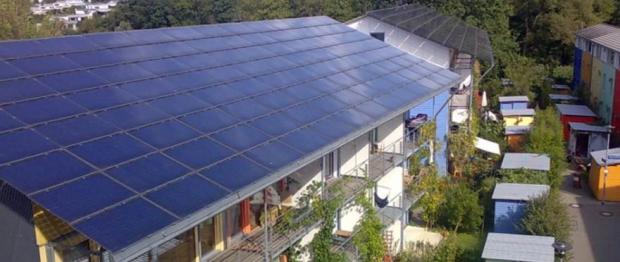Germany’s energy transition (Energiewende) remains the world’s only attempt thus far to build a society run almost entirely on energy produced from renewable sources. This energy transition encompasses the whole of German society: the related decisions made in Berlin are implemented at state, regional and local level. The concrete effects on the everyday lives of Germans can be seen in the form of energy production activities and in the construction of power grids, with the subsequent changes to local environments, working lives and electricity bills.
The economic, political and social impacts of the energy transition have been under discussion since the transition began. Construction work related to renewable energy production has resulted in more local jobs and has generated tax revenues for local authorities. However, at the same time, local construction projects have focused attention on citizens’ opportunities to be heard.
In Finland, the inaugural meeting of an expert panel on sustainable development, held in spring 2014, involved a discussion of the social impact of Germany’s energy transition. To get to the heart of the matter, the Finnish Innovation Fund Sitra commissioned a discussion paper from a researcher who specialises in Germany’s Energiewende. This paper assessed the energy transition’s social impact on ordinary citizens from the perspective of (in)equality. In addition to gauging the transition’s impact on the national economy (from the point of view of citizens), we need to ask how the costs and benefits of the energy transition have been distributed. In order to maintain its strong support among the German public, the energy transition must also prove to be socially sustainable.
The discussion paper’s key findings include the following observations.
- The energy transition is having positive effects on national income and employment. Renewable energy production employs over 370,000 people in Germany, mainly in the energy production sector. By contrast, the energy transition has only led to a minor increase in public sector jobs.
- Two thirds of the profits generated by the energy transition go to municipalities. Benefits to local authorities include tax revenue and rental income paid by energy companies, job creation and the operating profits of local companies. The energy transition is a major source of jobs and tax revenue, particularly in areas characterised by shrinking populations and economic decline.
- The transition is heavily based on dispersed energy production. This has provided proactive municipalities with opportunities to influence local value creation. Energiewende has provided a major economic boost to several local administrations of various sizes, while authorities that are fiscally dependent on nuclear or fossil fuel-based energy production are experiencing difficulties.
- A lively debate has arisen on the surcharges added to electricity prices to finance feed-in tariffs for renewable energy production. In terms of the public’s approval of the energy transition, the fair distribution of costs between people in different income categories, and between citizens and the private sector, is a crucial issue.
- The energy transition has encountered local resistance in many communities. Common concerns include the risks posed to health, the environment and the landscape, particularly with respect to the construction of wind power facilities and power grids. The impression of unfair treatment will be exacerbated if residents are unable to understand why wind turbines or power lines need to be built in their neighbourhoods. Local resistance has been countered by attempts to increase residents’ opportunities to have a say, particularly at municipal level.
Download the discussion paper here.





Recommended